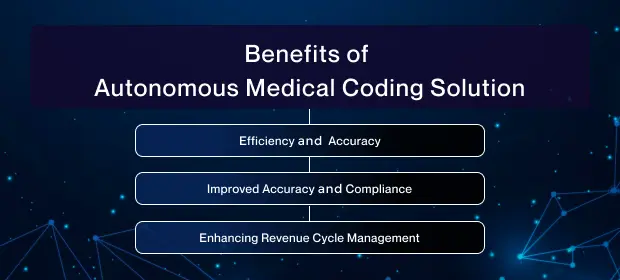In today's healthcare system, efficient coding, billing and reimbursement play a crucial role in the financial stability of healthcare organizations. With the increasing complexity of medical coding and billing requirements, efficient and accurate coding is vital for the financial health of practices. The emergence of autonomous medical coding technology has the potential to revolutionize the healthcare revenue cycle management (RCM), significantly improving efficiency and accuracy.
Autonomous medical coding involves using artificial intelligence and machine learning algorithms to analyze clinical documentation and automatically assign the appropriate medical codes for billing and reimbursement purposes. The technology is designed to reduce the workload of human coders, minimize errors, and speed up the billing process, resulting in increased revenue and improved financial outcomes.
